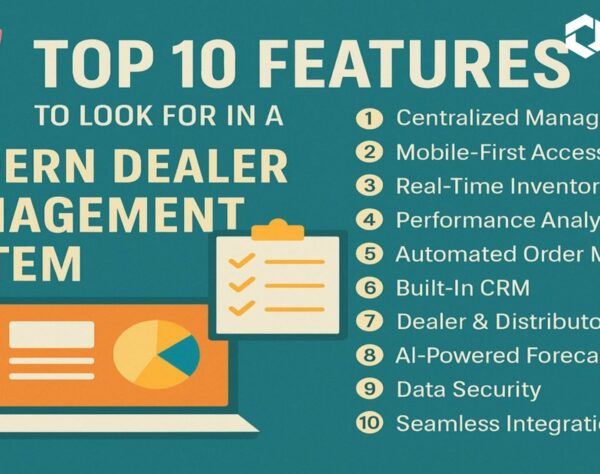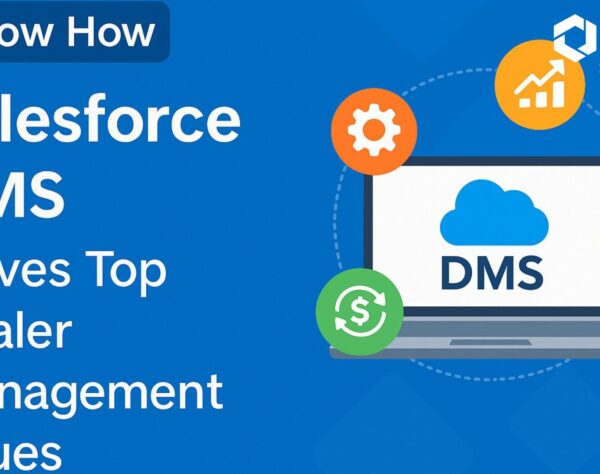
5 Sales Mistakes You Can’t Afford to Make and How Salesforce Helps You Avoid Them

How Salesforce Can Help You Fix 5 Common Sales Mistakes
In the high-pressure, competitive world of sales, even minor mistakes can result in missed opportunities, lost revenue, and a shrinking customer base. No sales team is immune to challenges, but identifying and addressing common pitfalls can dramatically improve performance and outcomes. If your team is facing any of these sales struggles, you’re not alone—and there’s a solution. Enter Salesforce, the powerful CRM platform designed to streamline and optimize every aspect of your sales process. Let’s explore five critical sales mistakes your team may be making, and how Salesforce can help you overcome them.
1. Neglecting Lead Qualification
The Mistake:
A common mistake that sales teams make is investing time and resources into leads that are not properly qualified. These are often “bad-fit” leads that are unlikely to convert into paying customers. As a result, your sales team spends valuable time and effort on unproductive leads, which lowers conversion rates and hampers overall sales efficiency.
How Salesforce Can Help:
Salesforce’s Lead Scoring and Qualification tools allow you to prioritize leads based on their likelihood to convert. By analyzing factors like engagement history, company size, and demographic information, Salesforce helps your team focus on leads that have the highest potential. This enables sales reps to spend their time on high-value opportunities, boosting conversion rates and shortening the sales cycle.
2. Lack of Effective Follow-Up
The Mistake:
Another critical error sales teams make is failing to follow up with leads or existing customers in a timely manner. In today’s fast-paced world, missed follow-ups can lead to lost sales, decreased customer satisfaction, and a damaged reputation.
How Salesforce Can Help:
Salesforce’s automated workflow and task management features help ensure that follow-ups are handled promptly. Automated reminders, follow-up emails, and task tracking features make sure your sales team stays on top of important communications. Salesforce ensures no lead or client slips through the cracks, maintaining consistent and timely engagement throughout the sales process.
3. Poor Data Management
The Mistake:
Sales teams often struggle with managing customer data. Disorganized or incomplete data can lead to inaccurate forecasting, poor decision-making, and inefficiencies in the sales process. Without clean and structured data, it becomes difficult to identify trends, track performance, and optimize the sales pipeline.
How Salesforce Can Help:
Salesforce’s comprehensive CRM system centralizes all customer information in one place, making it easier for your team to access and manage critical data. With built-in tools for data cleansing, enrichment, and integration, Salesforce ensures your data is always accurate and up-to-date. This empowers your sales team to make informed decisions, forecast accurately, and identify key trends that will drive revenue.
4. Inconsistent Sales Processes
The Mistake:
When sales teams lack standardized processes, they often follow different methods for lead qualification, deal closing, and customer management. This inconsistency can lead to inefficiencies, confusion, and inconsistent results.
How Salesforce Can Help:
Salesforce helps create a standardized sales process that every team member can follow. Using automation and workflow tools, Salesforce ensures that all steps in the sales process are clearly defined and followed consistently. With predefined stages, tasks, and procedures, Salesforce minimizes variability in how sales reps approach their jobs, improving efficiency and predictability in your sales cycle.
5. Ignoring Analytics and Reporting
The Mistake:
Sales teams that don’t leverage data analytics and reporting tools often miss out on valuable insights that can inform strategy and drive performance. Without actionable data, it’s difficult to know where your team is excelling, where they need improvement, and which areas are ripe for optimization.
How Salesforce Can Help:
Salesforce offers powerful analytics and reporting tools that provide real-time insights into sales activities, customer behavior, and team performance. With customizable dashboards and reports, your sales team can track key performance indicators (KPIs), monitor progress against goals, and identify trends that can influence strategy. Whether it’s assessing win rates, understanding pipeline velocity, or determining the effectiveness of marketing campaigns, Salesforce’s data-driven approach helps your team make informed, strategic decisions.
How Salesforce Drives Sales Team Success
Addressing these five grave sales mistakes is essential to building a high-performing, efficient sales team. By leveraging Salesforce’s comprehensive suite of tools, your team can overcome these challenges and move toward greater success. Salesforce’s CRM system offers everything from lead qualification and automated workflows to data management and advanced analytics, helping your team stay organized, focused, and productive.
With Salesforce, you can:
- Improve lead conversion rates by focusing on high-potential opportunities.
- Ensure timely and consistent follow-up with prospects and customers.
- Keep customer data accurate and up-to-date for better decision-making.
- Standardize sales processes to enhance efficiency and consistency.
- Harness the power of analytics to make data-driven decisions that optimize performance.
By implementing Salesforce’s robust features, your sales team will not only correct these common mistakes but also pave the way for sustained growth, improved sales performance, and a more successful business overall.
Ready to dive deeper into the topics you love? Visit our website to explore a treasure trove of valuable content, resources, and insights that will captivate your mind and fuel your curiosity!
Want to speak to an expert? Fill in the form below, and we will be in touch with you shortly!







